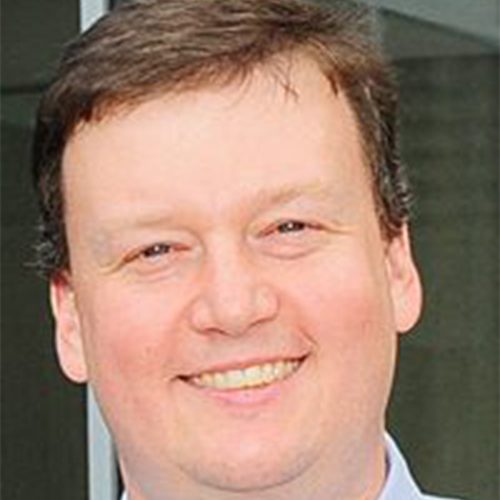
Adjunct Professor
Email: Marko.Kryworuchko@ubc.ca
Research Summary
Immune Engineering, Vaccines, Immunotherapeutics, Pathogenesis of Infection, Autophagy, Programmed Cell Death
Education
University of Ottawa, 1999, Ph.D., Microbiology and Immunology
University of Ottawa, 1992, B.Sc., Biochemistry
Research interests + projects
Autophagy is an essential cellular process (reviews), which as its name suggests, allows the cell to engulf and degrade portions of the cytoplasm for use as an energy source, and to remove superfluous or defective organelles and proteins. Critical is the role of autophagy in maintaining cell homeostasis and survival in response to metabolic stressors. However, autophagy has also been proposed to contribute to a unique form of programmed cell death, referred to as autosis, thus positioning this pathway as a key tipping point between the cell’s survival and its ultimate demise. Furthermore, the autophagy machinery of the cell is required for the elimination of certain intracellular pathogens such as Mycobacterium tuberculosis and HIV. Autophagy signals the presence of pathogen to the immune system, and mobilizes innate and adaptive immune cells including monocytes/macrophages, helper and killer T cells, as well as antibody-producing B lymphocytes. Our main research aims are to design and evaluate autophagy-based infectious disease therapeutics and vaccines, and to distinguish the molecular mechanisms by which autophagy can exert cytocidal vs cytoprotective effects in human monocytes.
Selected publications + presentations
Braasch, K, Kryworuchko, M.*, and Piret, J.M. 2021. Autophagy‐inducing peptide increases CHO cell monoclonal antibody production in batch and fed‐batch cultures. Biotechnology and Bioengineering. Published Paper. http://doi.org/10.1002/bit.27703
Alhetheel, A., Bridge, R., Elsageyer, M., Kumar, A., and Kryworuchko, M.* Autophagy is implicated in a caspase-independent form of spontaneous and Interferon-g-induced programmed cell death that is attenuated by Interleukin-10 in human monocytes. Submitted Paper.
Benoit, A., Saxena, M., Saad, A., Kumar, A., and Kryworuchko, M.* Selective role of Growth Factor Independent -1 (GFI1) in IL-4-dependent repression of IL-7Ra expression and proliferation of primary human CD8 T lymphocytes. Submitted Paper.
Kwok, M., Kalyan, S., Bazett, M., Kwok, E., Yadav, V. and Kryworuchko, M.* June 2019. Role of cellular autophagy (“self-eating”) in the activity of novel Site-Specific Immunomodulators (SSIs). ImmunoBC 2019 Conference, Vancouver, BC, Poster.
Chan, M., Hickman, R., Chan, T., Eisler, D., Chow, R., Auk, B., Jassem, A., Levett, P., Krajden, M., and Kryworuchko, M.* October 2018. Evaluation of the Hologic Panther Fusion® Molecular Platform for Respiratory Pathogen Detection. 11th Annual BCCDC Research Symposium, Vancouver, BC, Poster.
Kryworuchko, M.* October 2017. Autophagy: a little bit of cellular “self-eating” to help fight infection. 10th Annual BCCDC Research Symposium, Vancouver, BC, Seminar.
Braash, K., Kryworuchko, M.*, Piret, J.M. October 2017. Autophagy enhances exogenous monoclonal antibody production in a mammalian cell culture system. Vancouver Autophagy Symposium, Vancouver, BC. Poster.
Kryworuchko, M.* 2015. Therapeutic targeting of the autophagy pathway as an anti-microbial agent and vaccine adjuvant. Centre for Drug Research and Development, Biologics Group, Vancouver, BC. Seminar.
Pujhari, S., Kryworuchko, M., and Zakhartchouk, A. 2014. Role of phosphatidylinositol-3-kinase (PI3K) and the mammalian target of rapamycin (mTOR) signaling pathways in porcine reproductive and respiratory syndrome virus (PRRSV) replication. Virus Research. 194:138-44.
Kryworuchko, M.* 2014. Life or death decisions of autophagy. Canadian Society for Immunology Conference, Quebec City, Quebec, Symposium Seminar.
Alhetheel, A., Aly, M., and Kryworuchko, M. 2013. Immune responses and cell signaling during chronic HIV infection. Current Perspectives in HIV Infection, S.K. Saxena, ed., IntechOpen Ltd., pubs. Book Chapter.
Kryworuchko, M.* 2013. Role of autophagy in monocyte programmed cell death: implications for chronic HIV infection. University of Peruana Cayetano Heredia, Lima, Peru, Seminar.
Kryworuchko, M.* 2013. Life or death decision of autophagy across our kingdoms. Brock University, Department of Biological Sciences, St. Catharines, ON, Seminar.
Saxena, M., Busca, A., Pandey, S., Kryworuchko, M., and Kumar, A. 2011. CpG protects human monocytic cells against HIV-vpr-induced apoptosis by c-IAP-2 through the calcium-activated JNK pathway in a TLR-9 independent manner. J. Immunol. 187(11):5865-5878.
Benoit, A., Abdkader, K., Sirskyj, D., Alhetheel, A., Sant, N., Diaz-Mitoma, F., Kumar A., and Kryworuchko, M.* 2009. Inverse association of repressor Gfi-1 with CD8 T cell IL-7Ra expression and limited STAT signaling in response to IL-7 among gc cytokines in HIV patients. AIDS. 23(11):1341-7.
Busca, A., Saxena, M., Kryworuchko, M., and Kumar, A. 2009. Anti-apoptotic genes in the survival of monocytic cells during infection. Current Genomics. 10(5): 306-317.
Alhetheel, A., Yakubtsov, Y., Abdkader, K., Sant, N., Diaz-Mitoma, F., Kumar, A., and Kryworuchko, M.* 2008. Amplification of the STAT1 signaling pathway and its association with apoptosis in monocytes from HIV-infected patients. AIDS. 22: 1137-1144.
Sirskyj, D., Kumar, A., Theze, J., and Kryworuchko, M.* 2008. Disruption of the γc cytokine network in T cells during HIV infection. Cytokine. 43: 1–14.
Kryworuchko, M.* 2008. HIV-induced monocytic cell death & blood-borne pathogen diagnostics in a NANO-nutshell. Canadian Blood Services. Ottawa, ON, Seminar.
Azizi, A., Ghorbani, M., Kryworuchko, M., Aucoin, S., Diaz-Mitoma F. 2005. Potency of cell-mediated immune responses to different combined HIV immunogens in a humanized murine model. Human Vaccines. 1(4): e24-e30.
Kryworuchko, M., Pasquier, V., Keller, H., David, D., Gilquin, J., Viard, J.P., Ranoux, M.T., Joussemet, M., Delfraissy J.F., Theze, J. 2004. Defective IL-2-dependent STAT5 signaling in the CD8 T lymphocytes from HIV+ patients: restoration by HAART. AIDS. 18: 421-426.
Kryworuchko, M., Creery, D., Kumar, A., 2004. The role of Interleukin-10 in infectious diseases. Interleukin-10, F. Marincola, ed., Landes Bioscience, pubs. pp. 107-124.